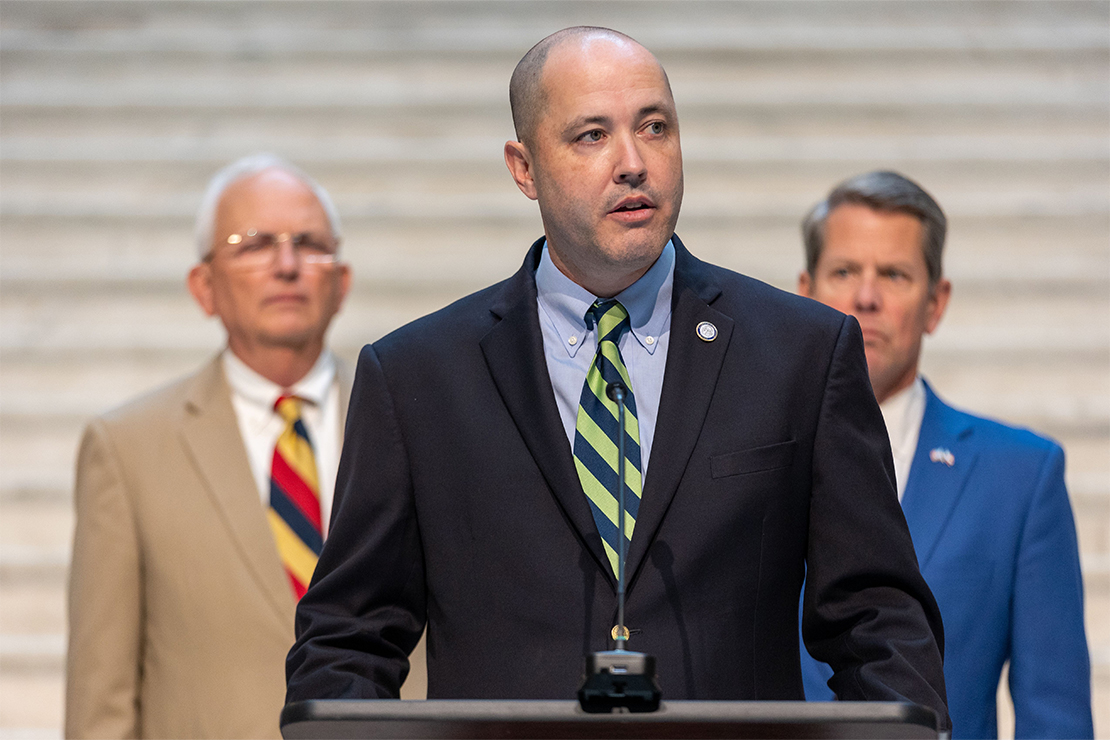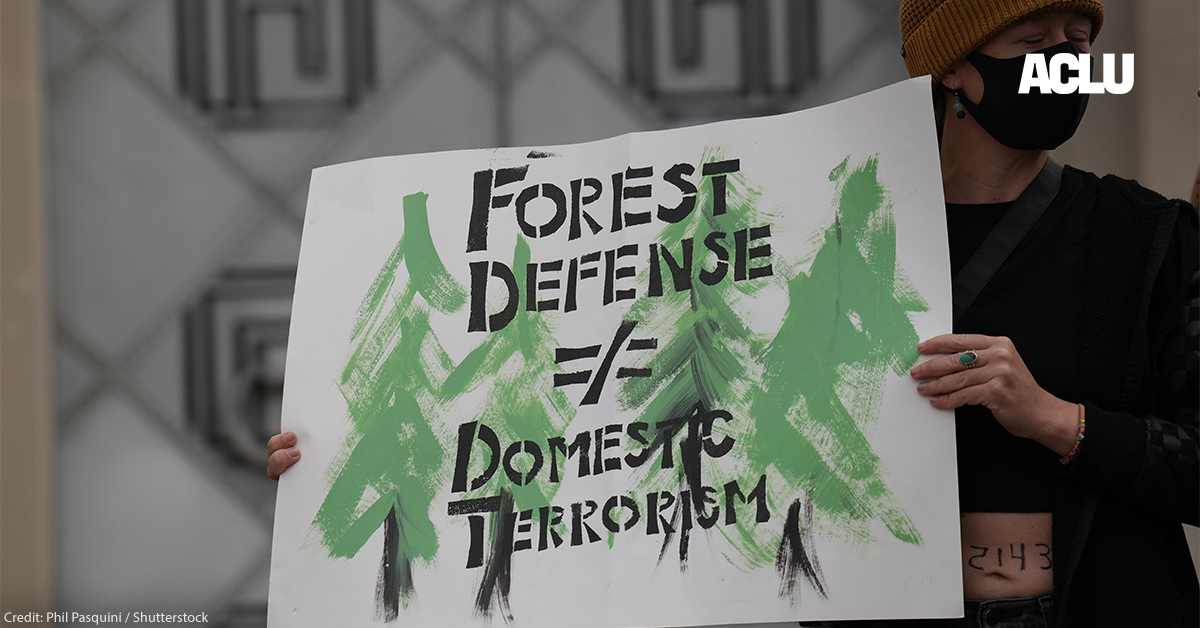The 2020 police killing of George Floyd launched the largest protests in U.S. history and a nationwide reckoning with systemic racism and police brutality. Now, Georgia’s Attorney General Chris Carr has shamefully invoked Floyd’s killing and the subsequent uprising in a sweeping criminal indictment of activists protesting a $90 million Atlanta police training center known as “Cop City.” Carr’s actions must be understood as extreme intimidation tactics that we need to resist. They must not set a precedent.
On September 5, Carr obtained indictments against 61 people, alleging violations of the state’s Racketeer Influenced and Corrupt Organizations (RICO) law, over ongoing efforts to halt construction of Cop City. Indicted activists, including a protest observer, face steep penalties of up to 20 years in prison. Three bail fund organizers face additional money laundering charges, and five people also face state domestic terrorism charges.
The indictment’s theory is shocking, and its combination of charges is unprecedented.
Georgia’s legislature intended RICO to combat organized crime, not to punish protest, civil disobedience, or isolated crimes. Yet according to Carr, opposing construction of Cop City amounts to a criminal conspiracy under the state RICO statute. To make its case, the indictment relies on people’s beliefs and community organizing as the connective tissue for sweeping criminal liability. It devotes 25 pages to vilifying Defend the Atlanta Forest (DTAF), the grassroots movement opposing Cop City’s construction, identifying its “beginnings” in the nationwide protests against George Floyd’s murder and protests in Georgia against the police killing of Atlanta resident Rayshard Brooks, and calling out the movement’s “anarchist ideals.” It paints the provision of mutual aid, the advocacy of collectivism, and even the publishing of zines as hallmarks of a criminal enterprise. In doing so, it flies in the face of First Amendment protections for speech, assembly, and association.

Georgia attorney general Chris Carr speaks at a press conference as Georgia Governor Brian Kemp (on the right) looks on.
Nathan Posner/Shutterstock
While Carr wants to prosecute a protest movement as if it were a full-fledged organized crime ring, much of the alleged conduct is far less severe. For example, the indictment’s list of alleged criminal conduct repeatedly includes: people trying to occupy the forest in which Cop City would be built, reimbursements for protest supplies, and characterization of individuals attempting to join a “mob” to overwhelm the police. Even innocuous acts like buying food, writing “ACAB,” or distributing flyers are made out to be the cornerstones of a nefarious criminal scheme.
To the extent that unlawful conduct such as property crimes could be alleged, Georgia prosecutors could have chosen to press those specific lesser charges. Instead, the indictment haphazardly sweeps many forms of opposition to Cop City, including speech, peaceful protest activities, and minor acts of civil disobedience, into felony violations of Georgia’s anti-racketeering law.
Indeed, Georgia officials have repeatedly chosen to escalate charges beyond any legitimate need. In March of this year, Georgia police stigmatized 42 Cop City activists with arrests for “domestic terrorism.” This is exactly the kind of overreach rights groups warned about and objected to when Georgia’s legislature amended the domestic terrorism law in 2017 to add a harsher punishment — up to 35 years — to property crimes that were already illegal, simply because of accompanying political expression critical of government policy. It’s chilling to see “domestic terrorism” charges formally levied against five people in the recent indictment.
Taken together, these disproportionate charges send a clear message: Think twice before voicing your dissent. Unfortunately, punitive intimidation tactics against civil rights, social justice, and environmental activists is not new. We do not forget that civil rights movement leaders like Rep. John Lewis and Dr. Martin Luther King, Jr. were labeled security threats and investigated, monitored, and often arrested — including in Georgia — based on their organizing and civil disobedience in the pursuit of equality. If Georgia’s RICO and “domestic terrorism” laws had been available to prosecutors in the civil rights era, they could easily have been misused to persecute activists.
Today, there is legitimate concern that Georgia’s sweeping indictment could form a playbook for other prosecutors and state officials seeking to stifle political dissent. Several states now have RICO and domestic terrorism laws on the books. But Attorney General Carr’s actions must not set a precedent.
Instead, Georgia should honor a better precedent. Atlanta a critical hub of the modern civil rights movement — and the protection of protest is integral to both our rights and our democracy. Attorney General Carr’s trumped-up and excessive charges against Cop City activists should be dropped immediately.



